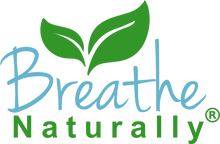Breathe Naturally - January 2, 2024
Can Air Purifiers Capture and Kill Coronavirus to Reduce Covid Transmission?

Key Takeways:
- Air purifiers cannot completely protect against Covid-19 infection on their own. But they reduce airborne transmission risks when combined with other precautions.
- HEPA and MERV filters are effective at removing over 99% of coronavirus aerosols that transmit Covid through the air.
- UV-C light air purifiers can also inactivate airborne SARS-CoV-2 viruses to limit spread.
- Air filters are especially useful in higher-risk indoor spaces like healthcare settings and crowded areas.
- In the home, run air purifiers continuously in shared rooms and isolate sick individuals to limit exposure.
- Look for units with high CADR ratings and filters appropriate for room size. Maintain filters based on manufacturer advice.
The Covid-19 pandemic has raised renewed interest in the ability of air purifiers and filters to remove coronavirus particles from indoor air. While ending the pandemic will rely on vast vaccination efforts, deep-cleaning indoor air can provide an additional layer of defense against transmission.
This is especially true against new variants like Omicron, which spread more easily through the air. Portable HEPA purifiers, installed HVAC filters, and UV technologies offer promise for schools, businesses, and homes aiming to reduce infection risks.
But just how effective are they? The key facts in the ongoing science point to real, if limited, protective benefits.
HEPA Filters Remove Over 99% of Coronavirus Aerosols
Crucially, HEPA (high efficiency particulate air) filters capture at least 99.97% of particles sized 0.3 microns and above (1). This includes the tiny aerosol droplets that carry SARS-CoV-2 viruses suspended in air.

Studies verify that HEPA filtration effectively removes 99.99% of coronavirus aerosols from indoor air as people breathe, talk, cough, and sneeze (2).
UV-C Light Inactivates Airborne Coronaviruses
Ultraviolet germicidal irradiation (UVGI) systems take air purification a step further. UV-C light directly kills viruses, bacteria, and molds as air flows over the lamps inside units.
Controlled tests demonstrate that UVGI treatments eliminate 99.99% of airborne SARS-CoV-2 virus within milliseconds, preventing spread through HVAC systems (3).
Air Purifiers Supplement Essential Protections Like Masks and Distancing Unfortunately, no technology eliminates infection risks. Used alone, air purifiers certainly cannot prevent the spread of the highly contagious SARS-CoV-2 virus. Vaccines, masks, distancing, ventilation, testing, and quarantines remain critically important
But high-quality HEPA and UVGI purifiers provide meaningful help as part of holistic infection control strategies, especially in high-density indoor environments like schools, offices, and healthcare centers.

At Home, Isolate the Sick and Run Air Purifiers Continuously
In households where someone has Covid, isolation in separate rooms is most important. Sick individuals should wear masks outside their rooms and have their own bathroom. This limits exposure.
In shared spaces, portable HEPA filter units with high Clean Air Delivery Rates (CADRs) over 300 m3/hour help purge virus particles people breathe out. Size filters for the room area and run continuously when occupied.
Additionally, installed central HVAC filters should offer at minimum MERV 13 filtration, which catches around 90% of viruses. MERV 16-20 works even better. UV systems also improve HVAC safety.
With diligent, multi-layered safeguards like masking, distancing, ventilation, air filtration, testing, hygiene, and isolation of the infected, people can better protect their homes and families against the airborne spread of Covid-19.
Sources
1. CDC. COVID-19 Prevention Actions
2. lNIST. Study Shows Effectiveness of Face Masks in Reducing Airborne Transmission of COVID-19.
3. Lancet. Solar ultraviolet radiation sensitivity of SARS-CoV-2.
